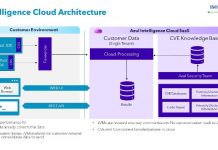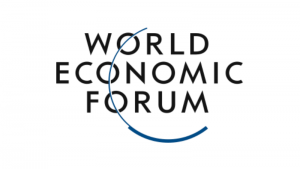
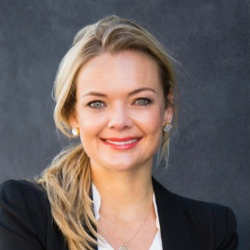
“As blockchain technology is so new, supply chain decision-makers need clear guidelines, tools and frameworks to help them maximize the benefits and minimize the risks of this technology,” said Nadia Hewett, project lead, Blockchain and Distributed Ledger Technology, World Economic Forum.
“This toolkit will be built by the industry and piloted, so we can see what works and what does not. We are going to piece together the puzzle, so others don’t have to start from scratch. As digital technologies such as blockchain increasingly encourage higher levels of trust among supply chain partners, they will have effects on processes in the physical world as well. As a result, fragmentation within and across industries could diminish, the occurrence of errors and exceptions could decline, and operators could require fewer resources to complete the same tasks.”
Supply chain background
Today, the supply chain industry remains fragmented. Participants possess a largely siloed approach.
In contrast, blockchain (distributed ledger technology or DLT) could replace those silos with standardisation and transparency. The downside: many regard blockchain as nascent technology prone to hype, which is where the WEF makes its entry.
The WEF’s ‘Redesigning Trust with Blockchain in the Supply Chain‘ project is an initiative to assist supply chain decision-makers to:
- cut through any blockchain hype
- ensure the technology is relevant
- deploy it in an interoperable, responsible and inclusive way.
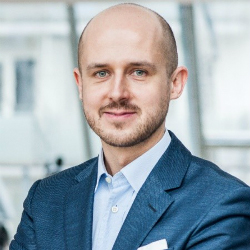
Bernhard Kowatsch, Head, Innovation Accelerator, World Food Programme, said: “A big part of WFP’s core operations revolve around logistics and supply chain, distributing food and other life-saving items to more than 90 million people in 83 countries around the world. Becoming a part of the Forum’s Redesigning Trust: Blockchain for Supply Chain community has provided us with the opportunity to share real-world challenges and use cases, making invaluable connections between the private and public sectors to assist us in the development of our own innovative blockchain for supply chain projects.”
Selected participants
Over 100 organizations and experts have joined. These include representatives of:
- large shippers
- supply chain providers
- governments.
Named participants include:
- Maersk
- Hitachi
- Mercy Corps
- Korea Customs Service
- Llamasoft
- the Port of Los Angeles, Oakland, Valencia and Rotterdam.

“We believe that blockchain is a promising technology for several industry verticals, including the financial sector, distribution and logistics, among others,” said Norihiro Suzuki, Ph.D., Vice President and Executive Officer, Chief Technology Officer, and General Manager of the Research & Development Group, Hitachi, Ltd.
“Hitachi is actively contributing to the development of platforms through open source software communities. We are looking forward to working with the World Economic Forum to bring together these communities to explore the future of supply chains and data flow economy.”
For the future
The WEF will release periodic white papers summarising the findings from the participant community. It expects recommendations to include guidelines on:
- data privacy
- security
- creation and use of data
- public versus private platforms
- interoperability
- digital identity
- signatures.
For example, analysis in the first white paper points to a mindset shift in business:
- from protective and silo-thinking
- towards a willingness to try new collaborative models.
Competing ports have started to share data to optimise when ships dock in the North Europe area. The ports have also expressed a willingness to expand their model to embrace other ports. Similarly, beyond the shipping industry, the world’s four largest agriculture companies have partnered to digitise international grain trading.
This multi stakeholder group has agreed to:
- co-design an open-source roadmap (perhaps a toolkit)
- guide supply chain decision-makers towards successful blockchain deployments
- highlight technical and non-technical drivers of success
- identify risks, requirements and recommendations.
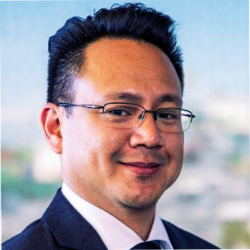
“The project has created a broad and diverse community of stakeholders to share experiences and develop a toolkit for innovators and decision-makers to navigate the complex policy, technical and commercial issues that arise from digital transformation of the supply chain,” said David Libatique, Deputy Executive Director, Port of Los Angeles.
Enterprise Times: what does this mean
Assembling over 100 of the more influential ports, shippers and supply chain companies to co-design an open-source toolkit to accelerate the deployment of blockchain technology in a coherent manner is no mean achievement. There are many competing interests. Perhaps it needed the ‘sponsorship’ from a body like the World Economic Forum to break down barriers.
If the codesign group can pilot a toolkit which streamlines deployment of blockchain, the benefits will be enormous. As IBM and Maersk (and others) have already discovered, this is not simple. In a ‘business space’ accustomed to operating in silos, transcending resistance will be neither fast nor easy.
Yet, in the view of Enterprise Times, there is nothing to be lost. All those with interests in improving supply chain efficiency should read the bi-monthly white papers, describing the findings from the community, with care.






